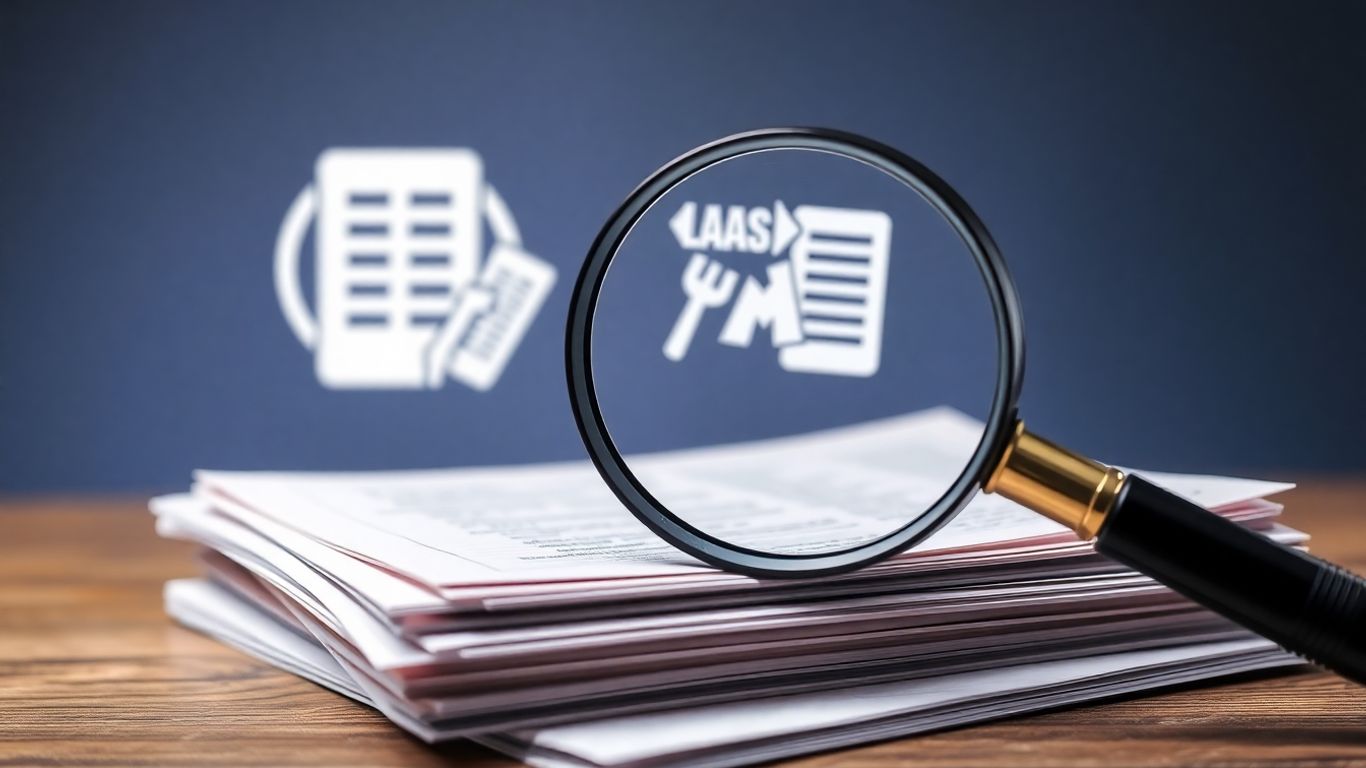[ newsletter ]
Stay ahead of Web3 threats—subscribe to our newsletter for the latest in blockchain security insights and updates.
Thank you! Your submission has been received!
Oops! Something went wrong. Please try again.
Master the contract audit with our comprehensive guide. Learn objectives, preparation, execution, and best practices for business success. Ensure compliance and mitigate risks.





Running a business means dealing with a lot of agreements. You've got contracts with suppliers, clients, maybe even employees. Making sure everyone sticks to the plan is super important, and that's where a contract audit comes in. Think of it like a check-up for your contracts. This guide will walk you through how to do it right, so your business stays on track and everything stays fair.

So, you've got contracts. Lots of them, probably. From your suppliers to your clients, these agreements are the backbone of how your business gets things done. But are they actually doing what they're supposed to? That's where a contract audit comes in. Think of it like a check-up for your agreements. It's a close look at the paperwork and the actual dealings to make sure everyone's playing by the rules laid out in the contract. It's not just about finding problems, though. It's also about making sure you're getting the most out of these deals and that they're still a good fit for your business as it grows and changes.
A contract audit is basically a deep dive into one or more of your business agreements. The goal is to see if both sides – you and the other party – are sticking to what you both signed off on. This isn't just about spotting mistakes; it's about verifying that the contract is working as intended. The scope of an audit can vary a lot. Sometimes, you might just want to check a single, high-value contract. Other times, you might look at a whole category of contracts, like all your vendor agreements from the last year. It really depends on what you're trying to find out.
The scope needs to be clearly defined before you start. Are you looking at financial records, performance metrics, or just general compliance? Knowing this upfront saves a lot of time and confusion later on.
Why bother with a contract audit? Well, there are a few main reasons. First off, it's about risk management. You want to catch potential issues before they become big, expensive problems. This could be anything from a vendor missing deadlines to a clause that's causing confusion. Second, it's about performance. Are you or the other party actually delivering what was promised? An audit can confirm this. Finally, audits can uncover opportunities. Maybe the terms you agreed to a few years ago don't make sense anymore, and it's time to renegotiate for better terms or to adjust to your business's new needs.
Here are some common objectives:
Not all contracts are created equal, and some definitely need more scrutiny than others. Generally, you'll want to pay closer attention to contracts that involve significant financial commitments. Think major supplier agreements, large client contracts, or leases for your main office space. Contracts with complex terms or those that are critical to your day-to-day operations also warrant a closer look. Even contracts that are up for renewal might need an audit to see if the current terms are still favorable. It's also wise to audit contracts where there have been ongoing issues or disagreements, or those that have been in place for a long time without a review.
Alright, so you've decided it's time to really look at your contracts. That's smart. But just jumping in without a plan? That's a recipe for a headache. Think of it like getting ready for a big trip – you wouldn't just throw stuff in a bag and hope for the best, right? You plan your route, pack what you need, and figure out who's coming along. A contract audit is pretty much the same.
First things first, what exactly are you trying to find out? Are you worried about money being spent correctly? Or maybe you think a supplier isn't holding up their end of the deal? You need to nail this down before anything else. Trying to audit everything at once is like trying to eat an elephant – you gotta take it one bite at a time. So, decide which contracts are most important to look at. Are they the ones with the biggest dollar amounts? Or the ones that are super critical to your day-to-day business? Pinpointing this makes the whole process way more manageable and actually useful.
This is where you become a bit of a detective. You need to pull together all the paperwork related to the contracts you're auditing. This isn't just the main contract itself. Think about all the little things that go with it: any changes or addendums that were signed later, emails where you discussed specific points, invoices, payment records, even notes from meetings. Having all this stuff organized and ready makes the auditor's job easier, and yours too. It shows you're serious about this and have done your homework.
Here's a quick rundown of what you'll likely need:
You want to have everything in one place, easy to find. If the auditor has to chase down documents, it slows everything down and can lead to assumptions being made, which is rarely good.
Who's going to be involved in this? You can't do it all yourself, and you need people who know what they're talking about. This might include folks from your legal department, finance, procurement, or the business units that actually use the contract. If it's a really complex contract, you might even think about bringing in an outside expert. The key is to have a team that understands the contracts, knows your business, and can work together. Clear roles and responsibilities are important here, so everyone knows what they're supposed to do and when.
So, you've prepped, gathered your documents, and assembled your crack team. Now comes the real work: actually digging into those contracts. This isn't just about flipping through pages; it's about a systematic review to make sure everything is on the up and up. Think of it as a health check for your agreements.
This is where you get down to the nitty-gritty. You'll go through each contract, section by section, looking for accuracy and clarity. It’s important to verify that all the basic details are correct – like names, dates, and addresses. Are the legal entities named correctly? Are the start and end dates accurate? This might sound simple, but mistakes here can cause big headaches later.
Beyond just checking the details, you need to see if the contracts are actually working as intended and if everyone is playing by the rules. This means looking at how the contract is being followed in practice and whether it meets legal and company standards. For instance, if a contract has specific service level agreements (SLAs), you'll want to check if those service levels are being met. It’s also about making sure the contract doesn't violate any current laws or company policies. This part of the audit is key to identifying risks before they become problems.
Don't just rely on gut feelings or manual checks. Modern contract auditing involves using data to find patterns and potential issues. This could mean looking at payment histories to spot overpayments or analyzing performance metrics to see if suppliers are consistently meeting expectations. Tools can help crunch these numbers, revealing trends that might be missed otherwise. For example, you might find that a particular vendor consistently has late deliveries, or that a certain type of clause frequently leads to disputes. This kind of data-driven approach helps you make smarter decisions about your contracts and improve contract compliance.
The goal here is to move beyond simply identifying errors. It's about understanding why those errors are happening and what systemic changes can prevent them in the future. This proactive stance saves time and money in the long run.

So, you've gone through the whole contract audit process, and now you've got a report full of findings. What next? It's not enough to just know there are issues; you've got to actually do something about them. This is where the real work begins – turning those audit results into positive changes for your business.
First off, you need to really dig into what the auditors found. Don't just skim the summary. Read the whole report, and if anything's fuzzy, ask the auditors to explain it. Understanding the problem is half the battle, right? After that, you'll want to figure out how big of a deal each finding is. Does it mean you're losing money? Is it messing with how your business runs? Could it get you into legal trouble? Ranking these issues by how much they could hurt you helps you decide what to tackle first.
You can't just ignore problems that pop up in a contract audit. They're like little warning lights on your car's dashboard. If you don't check them out, a small issue could turn into a much bigger, more expensive one down the road. It's about being smart and proactive.
Once you know what needs fixing and in what order, it's time to make a plan. This isn't just a vague idea; it needs to be a concrete list of steps. For each issue, what exactly needs to be done? Who is going to do it? And by when? Having clear assignments and deadlines makes sure things actually get done, instead of just sitting on a to-do list forever. You'll also need to think about who needs to know what's going on. Let the right people in your company know about the findings and the plan to fix them. If the audit involved another company, you'll need to talk to them too. Be upfront about what you found and what you plan to do. Sometimes, you might even need to talk about changing the contract itself, especially if there are big problems with pricing or how things are supposed to work.
Having a plan is great, but you have to follow through. Set up a way to keep track of whether those corrective actions are actually happening. Are people doing what they're supposed to? Are the deadlines being met? Regular check-ins are a good idea. If you're working with another party, keep talking to them. Let them know how things are going on your end and listen to any concerns they might have. The goal is to get these issues sorted out completely. Sometimes, this means a follow-up audit down the line to make sure the fixes are sticking and that everything is compliant. It's all about making sure the contract works the way it's supposed to and that your business is protected.
So, you've gone through the whole audit process. Great job! But here's the thing: a contract audit isn't a one-and-done deal. To really keep things running smoothly and avoid future headaches, you need to make auditing a regular part of how you do business. It’s like getting regular check-ups for your contracts – you catch small issues before they become big problems.
Think of this as preventative maintenance for your agreements. You wouldn't wait for your car to break down completely before taking it to the mechanic, right? The same applies to your contracts. Setting up a consistent schedule means you're always on top of things. The frequency really depends on your business and the types of contracts you have. High-risk or high-value contracts might need a look-over every quarter, while simpler ones could be fine with an annual review. It’s about finding a rhythm that works for you.
Here’s a simple way to think about scheduling:
This is non-negotiable. If your documentation is a mess, your audits will be too. You need a system where every contract, amendment, addendum, and even relevant email chain is stored logically and is easy to find. When an audit comes around, or even if you just need to quickly check a term, you don't want to spend days digging through old files or shared drives. Having a centralized, organized repository for all contract-related information is key. This makes the audit process itself much faster and more reliable.
Keeping your contract documents tidy isn't just about making audits easier. It's about having a clear record of your business dealings. This protects you if disputes arise and helps everyone involved understand the terms without confusion.
Audits often involve multiple departments – legal, finance, procurement, operations, you name it. If these teams aren't talking to each other, things can get lost in translation, leading to misunderstandings or missed details. Make sure there are clear lines of communication established before an audit starts. This means knowing who is responsible for what information and how updates will be shared. Regular check-ins during the audit process, even brief ones, can prevent small issues from snowballing. It’s about making sure everyone is on the same page, from the initial planning to the final report.
Okay, so let's talk about how technology can really make contract auditing less of a headache. It's not just about having fancy software; it's about using the right tools to make things smoother and catch stuff you might miss otherwise. Think of it as giving your audit team a super-powered toolkit.
This is probably the biggest game-changer. Contract management software, or CMS, is like a central hub for all your agreements. Instead of digging through filing cabinets or scattered digital folders, everything lives in one secure place. This means you can easily find contracts, amendments, and all the related paperwork when you need it. Plus, many CMS platforms have features that automate reminders for important dates, track contract milestones, and even help generate reports. This saves a ton of time on those repetitive tasks, letting auditors focus on the actual analysis.
Beyond general contract management, there are tools specifically designed to help with the audit process itself. Data analytics tools, for instance, are fantastic for digging into the numbers. You can use them to spot trends over time, compare actual spending against budgets, or calculate important ratios that might signal a problem. Visualizing this data with charts and graphs can make complex information much easier to grasp. It's like having a detective's magnifying glass for your contract data.
Sometimes, just looking at raw numbers doesn't tell the whole story. Technology helps us see the patterns and connections that might otherwise stay hidden, pointing us toward areas that need a closer look.
Putting these tools to work isn't just about having them; it's about making them work together. When your contract management system talks to your data analytics tools, you get a much clearer picture. You can pull contract terms directly into your analysis, making sure you're comparing apples to apples. This integration means less manual data entry, fewer errors, and a much faster audit cycle. It's about building a smarter, more connected system for managing and reviewing your contracts.
The goal is to use technology to make contract auditing more accurate, efficient, and insightful.
So, we've gone over why checking your contracts is a good idea and how to actually do it. It might seem like a lot of work at first, but think of it like giving your business a regular check-up. Catching small issues early can save you big headaches and a lot of cash down the road. By making contract auditing a regular thing, you're not just ticking a box; you're actively protecting your business and making sure your agreements are actually working for you. It's about being smart and staying ahead of the game, which is what any successful business owner wants. Keep at it, and your contracts will be a solid foundation for your company's future.
Think of a contract audit like a check-up for your business agreements. It's a detailed look to make sure everyone involved is following the rules written in the contract. This helps catch problems early, like someone not doing what they promised or if you're paying too much. It's important because it saves you money, time, and avoids big headaches later on.
You'll want to pay extra attention to contracts that involve a lot of money, are really complicated, or are super important for your business to run. This could be big deals with suppliers, important service agreements, or anything where not following the rules could cause major trouble.
Getting ready means knowing exactly what you want to find out from the audit, like checking if a supplier is doing a good job or if you're getting a fair price. You also need to gather all the important papers related to the contract, like the agreement itself, emails, and any reports. Having the right people on your team to help with the audit is also key.
If the audit finds issues, the first step is to talk about them clearly. Then, you need to make a plan to fix them, like changing how things are done or talking to the other party. It's important to keep checking to make sure the problems are really solved and don't pop up again.
Technology can make things much easier! Special software can help you keep all your contracts organized in one place. It can also help you find information faster and even spot patterns or problems in the contract data. This means less manual work and quicker, more accurate audits.
There's no single answer, but it's smart to do it regularly. For really important or risky contracts, you might want to check them once a year or even more often. For simpler ones, maybe every couple of years. The main idea is to be proactive and not wait for a problem to happen.


